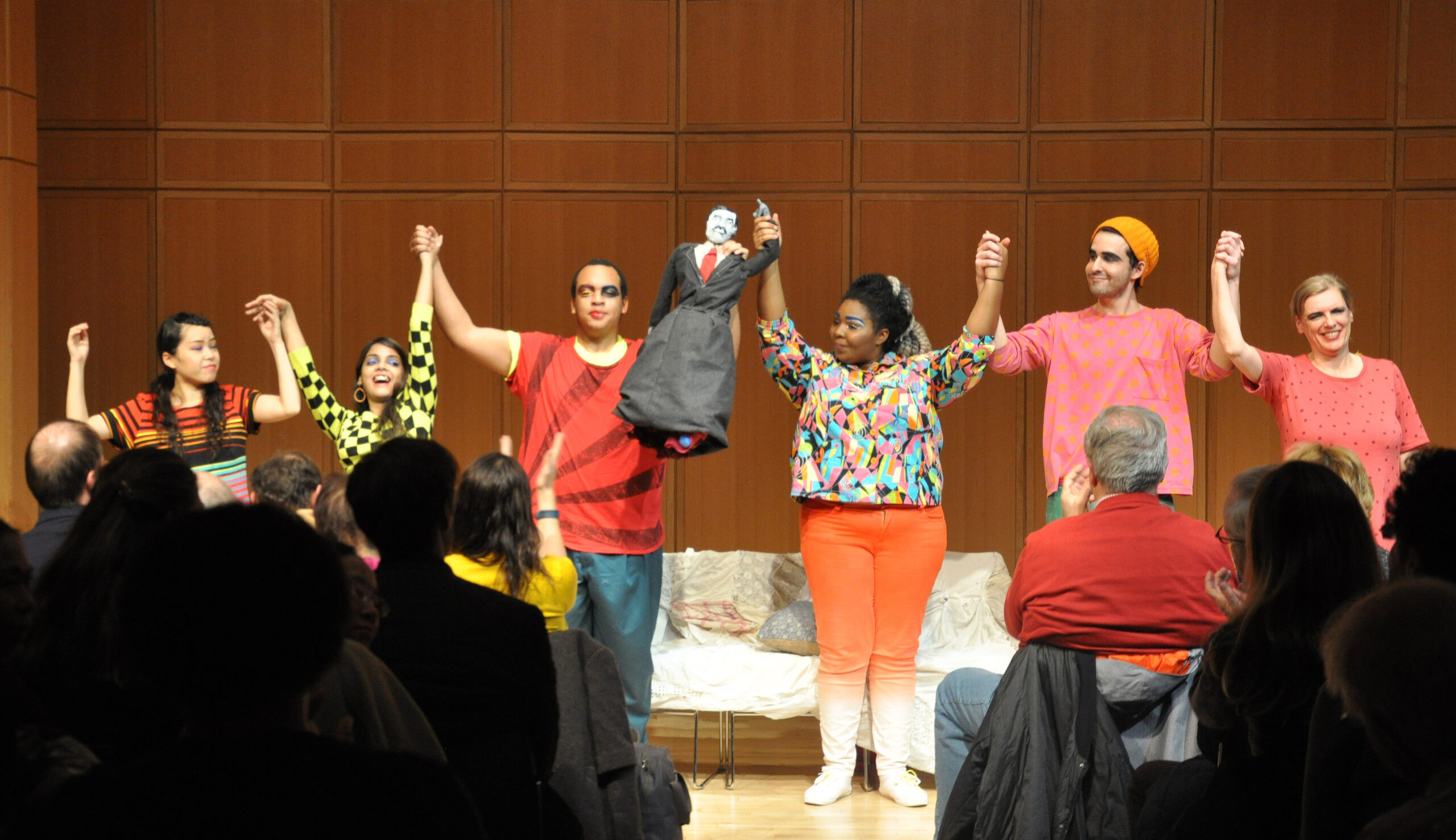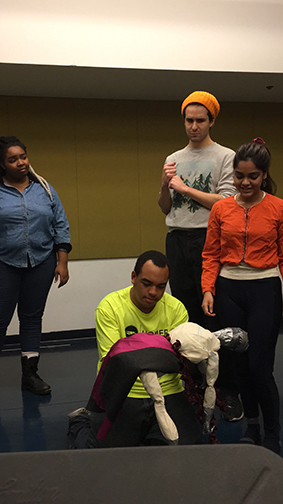
When I first became involved with the Center for the Humanities’ Seminar on Public Engagement and Collaborative Research, I could not wait to see the projects that would come to fruition after two years of collaboration between professors, graduate students, artists, and activists. When Debra Caplan and Cheryl Smith started talking about a collaboration with Target Margin Theater, I immediately asked to be involved. Two years later, my co-director Claire Moodey and I are about to open our production of Eugene O’Neill’s Marco Millions as a part of Target Margin’s “Unseen O’Neill Lab.” As a continuation of the idea of public humanities education, we wanted to share a bit of our rehearsal process with all of you, in preparation for this unusual production.
Marco Millions is ostensibly a satire about Marco Polo’s dealings with Kublai Khan, with Marco written as a 1920’s business tycoon. The play opened in 1928 and was immediately overshadowed by the much more important work Strange Interlude. It is an absolutely wacky play, and I have been drawn to it for its impressive stage directions (the subject of my dissertation) from the first moment I encountered it. Luckily for me, Claire also found it fascinating and frustrating and hilarious. Our play had been found, but what could you do with O’Neill in a translation context?
Claire and I immediately set about thinking of translation writ large: we were not only interested in translated languages, but also in how genre and style and plot could be translated in a variety of ways. We put out a call for performers and ended up with a group of six undergraduates, graduate students, and professors who speak 6 languages: English, German, Hindi, Japanese, Portuguese, and Spanish. We were hoping to show off the incredible talent and variety of CUNY’s spaces, but with the current political situation, we are also incredibly proud to show how this rich variety of cultures and languages highlights the ways in which difference can be a source of strength, collaboration, and communication. O’Neill was writing about cultures he did not know much about, and though he failed in a lot of ways, the impulse was a good one. Our cast has helped him out by fleshing out the linguistic and cultural “foreign” worlds that O’Neill created, and have thus kept the spirit of those aspects of the play, while changing the particulars.
We had hoped for this production to reflect less of what Claire and I thought about the play and more of what excited the performers about it. To this end, we quickly created a rehearsal technique that involved the performers having homework which required them to “translate” a particular moment in the play, whatever that meant to them. This resulted in occasionally hearing one of Marco’s speeches in Portuguese, or watching Kukachin’s monologue performed as a dance. The performers would each present their translations to each other, and then build collaborative translations into two short scenes. Next, each group would translate the other group’s scene. This translation of a translation technique created a performance vocabulary that was shared across all of the vastly different experiences of these six performers, and created everything you see in Marco Millions. It has been consistently awe-inspiring to watch these performers work together and mine this script for things that they wanted to give voice to through the play. The final product does not include all of O’Neill’s words in the script of Marco Millions, but it is most assuredly a true translation of this piece, and one Claire and I are very happy to have worked on.
Tickets are free, but please reserve online here:https://web.ovationtix.com/trs/pr/965829
This program is presented as part of Translation, an interdisciplinary research group that investigates how translation might be understood as a process of transformation that deepens engagement with places, people, cultures, and languages. The group is part of the Seminar on Public Engagement and Collaborative Research, funded by the Andrew W. Mellon Foundation.

From left to right: Amber Hutchinson, Randy Lopez, Robert Trevison, and Mayurakshi Sen in rehearsal for Marco Millions.